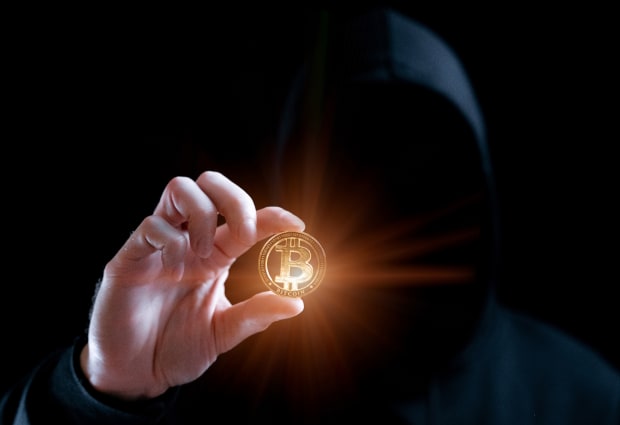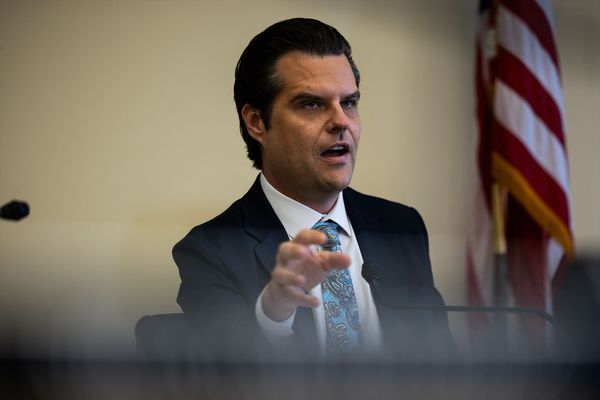The crypto industry had been asking for the menu. But based on the appetizer, it's not sure it's going to like the main course.
The White House has just published its first-ever comprehensive framework to regulate the young financial services industry, the hallmark of which is eliminating both middlemen and control of centralized entities.
The guidelines come after an executive order was published in March. The order listed six priorities the White House wanted federal agencies to consider:
- consumer and investor protection
- promoting financial stability
- countering illicit finance
- U.S. leadership in the global financial system and economic competitiveness
- financial inclusion, and,
- responsible innovation.
Six months after the White House emphasized the fight against scams and volatility in order to protect consumers, Joe Biden's administration also wants to impose environmental standards on the industry.
The White House is particularly targeting the proof-of-work transaction-validation process used by many blockchains, including bitcoin. This mechanism consumes huge amounts of energy because it requires a lot of computing power.
And with everything else, the administration is pushing for a digital dollar, a kind of digital twin of the dollar, at a time when China has taken a step ahead on this issue.

Shutterstock
Unsurprisingly, the crypto industry reaction has been negative. Evangelists like the billionaire Michael Saylor have been particularly critical of this framework.
"The latest White House Crypto Climate & Energy Report is full of misinformation generated and promulgated by unscrupulous crypto promoters in order to undermine #Bitcoin and champion their own interests," Saylor commented.
But other influential figures like Changpeng Zhao, the billionaire CEO of the Binance platform, have hailed this framework as paving the way for long-awaited regulation.
"The US’s whole-of-government approach to crypto regulation will bring much-needed consistency and clarity vs the current patchwork of state laws and regulations that govern this space," Zhao said.
Here is the outline of this framework, which highlights that millions of people worldwide, including 16% of American adults, have already purchased digital assets at some point.
Fight Scams and Illicit Activity
- The U.S Securities and Exchange Commission and the Commodity Futures Trading Commission should "aggressively pursue investigations and enforcement actions against unlawful practices in the digital assets space."
- The White House will "evaluate whether to call upon Congress to amend the Bank Secrecy Act, anti-tip-off statutes, and laws against unlicensed money transmitting to apply explicitly to digital-asset-service providers — including digital asset exchanges and nonfungible token platforms."
- The Biden administration doesn't rule out urging Congress to raise the penalties for unlicensed money transmitting to match the penalties for similar crimes under other money-laundering statutes. Nor does it rule out seeking to amend federal statutes to let the Justice Department prosecute digital-asset crimes "in any jurisdiction where a victim of those crimes is found."

Assessments Due by February and July
"As part of this effort, Treasury will complete an illicit finance risk assessment on decentralized finance by the end of February 2023 and an assessment on nonfungible tokens by July 2023."
The White House says it came to these tough recommendations because the crypto industry appears to be a lawless jungle for consumers. The administration quotes a study showing that almost a quarter of digital coin offerings -- the equivalent of initial public offerings for stocks -- had disclosure or transparency problems, like plagiarized documents or false promises of guaranteed returns.
"Outright fraud, scams, and theft in digital asset markets are on the rise: according to FBI statistics, reported monetary losses from digital asset scams were nearly 600% higher in 2021 than the year before," the Biden administration said.

Image Source: Chesnot/Getty Images
Environmental Impact of Bitcoin
The White House asks the Energy Department, the Environmental Protection Agency, and other agencies to consider further tracking of the environmental impact of digital assets, "developing performance standards as appropriate; and providing local authorities with the tools, resources, and expertise to mitigate environmental harms."
Bitcoin is not explicitly mentioned, but the blockchain, whose native token is bitcoin, the most popular cryptocurrency, uses proof-of-work to validate transaction blocks in the ledger.
This mechanism creates competition among computers, which solve mathematical puzzles to win the right to validate operations in exchange for bitcoins. This process also guarantees the security and integrity of the platform.
"Powering crypto assets can take a large amount of electricity — which can emit greenhouse gases, strain electricity grids, and harm some local communities with noise and water pollution," the White House said.
"Opportunities exist to align the development of digital assets with transitioning to a net-zero-emissions economy and improving environmental justice."
There are other more eco-friendly mechanisms, such as proof-of-stake, adopted Sept. 15 by ethereum, bitcoin's rival platform.
Digital Dollar
The White House is urging the Federal Reserve to explore the launch of a digital dollar, or Central Bank Digital Currency, which would be controlled by the Fed. This identical digital twin of the dollar would be completely regulated.
A U.S. digital dollar "facilitates faster cross-border transactions and is environmentally sustainable," the Biden administration explained. "It could promote financial inclusion and equity by enabling access for a broad set of consumers."
It could also "protect against cyber and operational risks, safeguard the privacy of sensitive data, and minimize risks of illicit financial transactions."
In addition, the White House believes a U.S. digital dollar "could also help preserve U.S. global financial leadership, and support the effectiveness of sanctions."

Shutterstock
Make Stablecoins Safer
Stablecoins are cryptocurrencies are, as their name suggests, designed to be unaffected by the broad and often sharp volatility of the cryptocurrency market.
They are backed by a fiat currency like actual dollars, or a commodity like gold -- equivalent assets stored in a bank.
These stablecoins are increasingly used by institutional investors worldwide because they are easy to move and speed up international transactions.
The problem is that everything happens without the knowledge of regulators and governments, which have no say in their use.
But the sudden collapse last May of the UST or TerraUSD, stablecoin has revived calls from the authorities to regulate stablecoins.
Stablecoins "could create disruptive runs if not paired with appropriate regulation," the White House said. "The potential for instability was illustrated in May 2022 by the crash of the so-called stablecoin TerraUSD and the subsequent wave of insolvencies that erased nearly $600 billion in wealth."
To make stablecoins safer, Treasury "will work with financial institutions to bolster their capacity to identify and mitigate cybervulnerabilities by sharing information and promoting a wide range of datasets and analytical tools."
The Treasury will also collaborate on identifying crypto-related risks with U.S. allies, including through the Organization for Economic Cooperation and Development and the Financial Stability Board.







